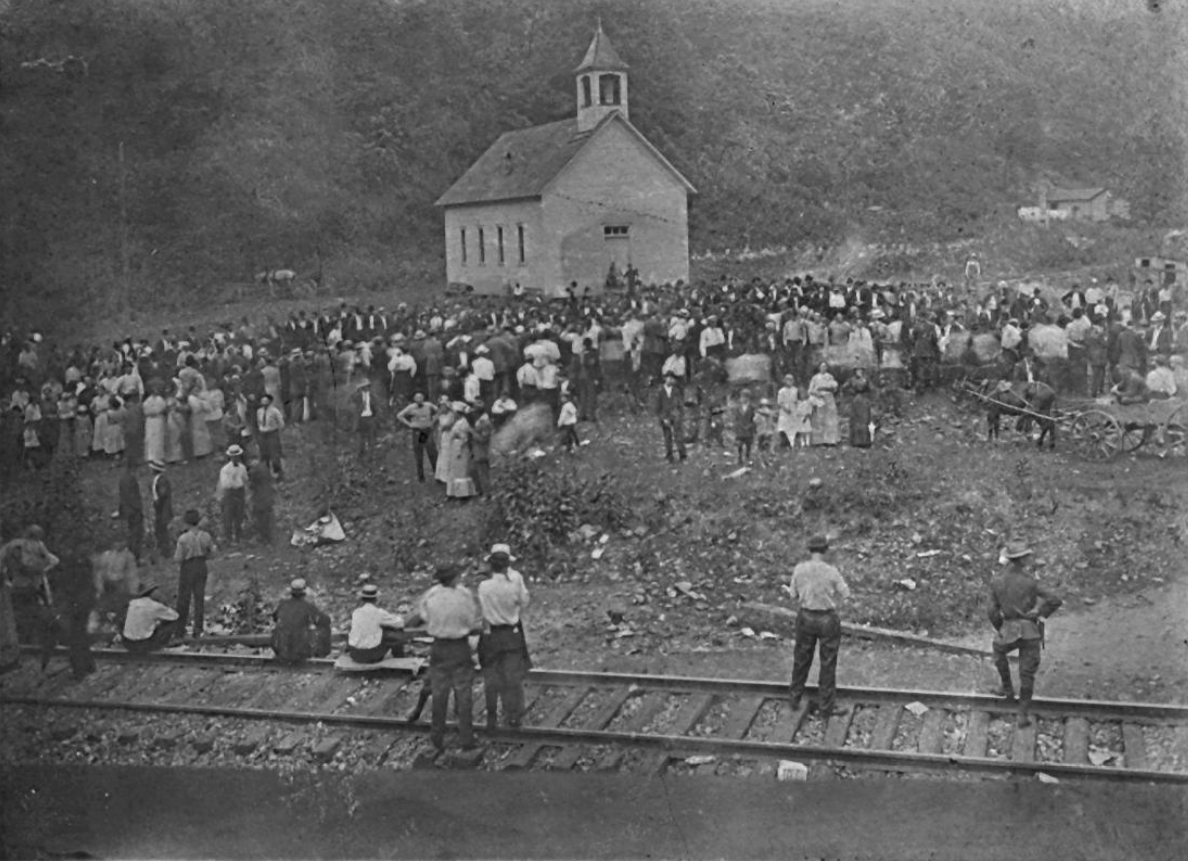Since 2016 the number of people who want to chat with me about rural communities, particularly in the South, has dramatically increased. Popular questions include how the Highlander Research and Education Center and our southern organizational partners prioritize, engage, and communicate our missions in this specific “political moment.”
To think of this as a specific moment, however, could not be further from the truth. This is a political present, and it is not disconnected from a dialectically incredible and troubling past. The special magic of being connected to the southern freedom and black liberation movements is that we attempt to practice the liberation in the present that we had hoped to live into. Elizabeth Catte’s reflection shows how that connectedness to our radical legacies of resistance informs so much of what is possible in Appalachia and across the South.
These conversations about strategies and ideologies are not new for people of good will in our region. Chattanooga, Tennessee, for example, threatened to secede from the state because of the city’s anti-slavery, pro- Union politics. By the 1930s, it was a headquarters for the Communist Party. Examples similar to Chattanooga are available across the South; various cities and towns have influenced the tactics and strategies that we use today, and they feed people’s hope in the idea that things can be different and better.
We are building on these past successes, even as they have been the target of right-wing, white supremacist regressive policies. Many of us have learned to not be distracted by false narratives about our region. We have learned to stand in our truth instead of just raging on social media, and when articles call us names that are not ours (e.g., backward, people who don’t vote their best interests, Trump Country) we put in the work to prove who we are. The brilliant black feminist Alexis Pauline Gumbs once described a prophetic dream that Harriet Tubman had in 1862, after which Tubman proclaimed that “My people are free.” Gumbs said, “If Harriet Tubman could talk about freedom in the present tense while posters around the country marked her as a ‘fugitive slave’ then we can robustly and specifically speak freedom in this moment when anti-blackness and state violence ring off the sidewalks, pools, patios, and streets of this land.”
We continue to speak freedom, and, as a result of our efforts, we have shifted judge seats; we elected district attorneys who are accountable to our people; and we built people power across Appalachia and the South. Our people have rallied behind Andrew Gillum and Stacey Abrams. In Florida we passed Amendment 4, restoring voting rights to some convicted felons.
I mention these lessons because they create a question for our colleagues who live outside the region. Which stories are you amplifying? Where is your camera pointed? Is it pointed here, at rural communities and inner cities, because we have solutions? Or because you have decided we are the problem?
The Democratic Party refuses to invest in the most populous geographic region in the country. Too many organized liberal, progressive, and left forces concede Appalachia and the South to white nationalists, white supremacists, and the extremist Tea Party. Now, as a result, an entire region has been reduced to “Trump Country.” We are blamed for Trump based on voting margins, even though those numbers do not take into account the many people who did not vote and, even more importantly, could not vote.
Our reality is that neoliberal politicians (at best) and outright conservatives in Democrat’s clothing (at worst) have not been good for our people. Chattanooga is a case in point. With depressingly low voter turnout, the city elected Andy Berke, the Democratic nominee, as mayor in 2013. The city has since been home to one of the fastest-gentrifying zip-codes in the country, even as it also has the highest concentration of low-wage workers in the country. Under the guise of progressivism, liberalism, and innovation, Chattanooga has become what Concerned Citizens for Justice deemed “The Perfect Storm of Inequality.”
Catte is spot on with her assessment that the way forward is through the past—a concept the Asante people of Ghana call “Sankofa.” It is why the Highlander Center is busy developing the next cohort of young southern freedom fighters and supporting them as they deepen transformative relationships with each other and with our movement elders. It is why we have brought rural white Appalachian factory workers together with Mexican factory workers, both exploited by the same capitalist bosses who tried to pit them against each other. The dictatorship of the elite and the wealthy, the corporations they run, the politicians they pay off, the systems of oppression that they uphold that harm our people have dismembered us from our radical legacies of resistance. It is our work to remember. And it is the job of allies outside the region to support, accompany, flank, and amplify those of us doing that work.
In the wake of the 2018 midterm elections, North Carolina organizer Julia Sendor said that white people—especially white women— need to ask the right questions to understand and dismantle whatever is blocking them from believing in and learning from rural Appalachian folks, particularly women of color. What is blocking people born and living outside the region from seeing vital truths as truths? What combination of assumptions, misinformation, lack of information, and even (and often) personal insecurities and fears are we all holding onto and spreading?
These questions are important because the one thing I know for sure is that as goes the South, so goes the nation. Folks in Appalachia are contending for power against white nationalists and white supremacists, and they are having a positive, power-building, lifesaving impact. The question is not Is the work happening? but What would happen if folks committed to supporting and investing in it?








